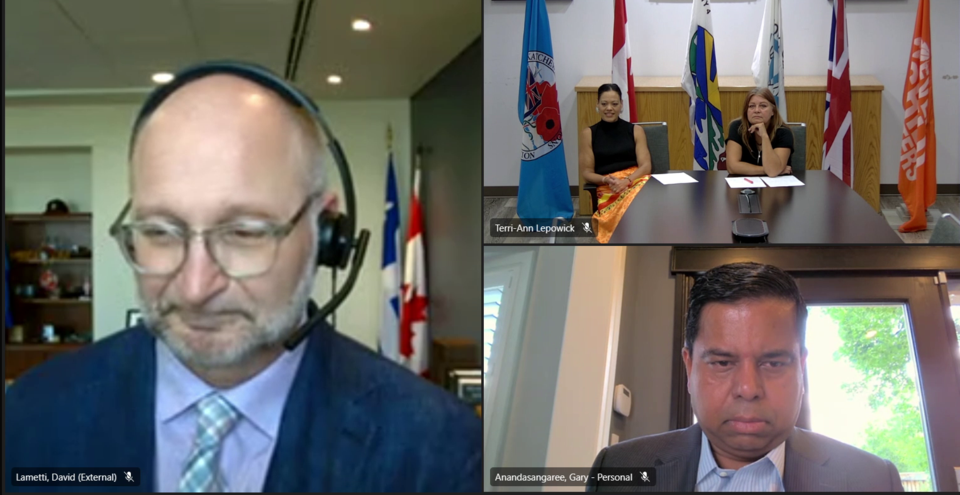YORKTON — David Lametti, Minister of Justice and Attorney General of Canada, announced $1.4M in funding for the Yorkton Tribal Council during a virtual press conference July 18.
The funding, to be dispersed over five years, will support YTC in the administration of justice in their communities through their Tribal Justice Unit's programs and services.
"This announcement comes at a time when we're seeing real progress that will lead to concrete change on this challenging journey of reconciliation and advancing the cause of justice for Indigenous Peoples,” said Lametti.
"All of us here know all too well that Indigenous people here experience systemic and individual acts of racism and discrimination at all stages of Canada's justice system. As a result they're tragically over-represented as victims, as survivors, as accused and as convicted — and those numbers keep growing." added Lametti.
“In 2020-21, Indigenous people represented 32 per cent of those in federal prisons in Canada, but only accounted for 5 per cent of the general population. (Sources: Office of the Correctional Investigator, Statistics Canada's Population and Demography Statistics),” according to the Justice Department of Canada.
"Between your government and our tribal council and many tribal councils across Sask and Canada we're very pleased with the announcement to continue working together and helping us to help our people to ... work towards our future generations and to help lower the rates — our goal is zero — to lower the rates of people within our justice system,” said Isabel O'Soup, YTC Tribal Chief.
"We have a great justice department at Yorkton Tribal Council and we'd like to continue the work that we do with you (the federal government) with some of our programs and enhance those programs to diminish those rates of our people who are incarcerated," added O'Soup.
"We could always use more capacity within our nations, we could always use more capacity within our tribal council,” said O'Soup when a question was asked about how the funding will impact the YTC, "the funding will definitely help us when we look at land based learning and connecting our youth with our elders in doing cultural training that we definitely we require.”
"I think a lot of our youth ... need to reconnect with their culture instead of connecting with gangs — they need to feel like they belong somewhere — when we have the opportunity to be able to re-instate in them the pride and the love for life of their culture and their people it's what we really need to focus on and work towards,” said O'Soup.
According to the Department of Justice Canada, through their Tribal Justice Unit, YTC works with communities to develop and implement justice programs services that are sensitive to the cultural needs of the member First Nations on reserve and in the urban environment in Saskatchewan. Through this support, the Yorkton Tribal Council will:
- provide community based programs for youth in conflict with the law, utilizing victim-offender mediations, community justice forums and accountability meetings and/or conferences;
- support Community Justice Committees to build community capacity to respond to the needs of victims and offenders through public education about restorative justice and alternative measures programs; and
- organize and conduct workshops for community members related to crime prevention, youth programs, victims services, correctional programs and other community based justice programs.
"These kinds of programs work because they're developed at the level of the community — they're culturally based, culturally focused and culturally grounded and therefore have a better success rate,” said Lametti, adding, “we're working hard to develop a larger Indigenous justice strategy — one of the subjects which is the focus of incarceration … we're doing that in collaboration with a variety of Indigenous groups — particularly First Nation leadership groups across Canada.”
“Any kind of resources that we can have come to the tribal council we're happy and we'll use them to the best of our ability to work towards that,” said O'Soup.




